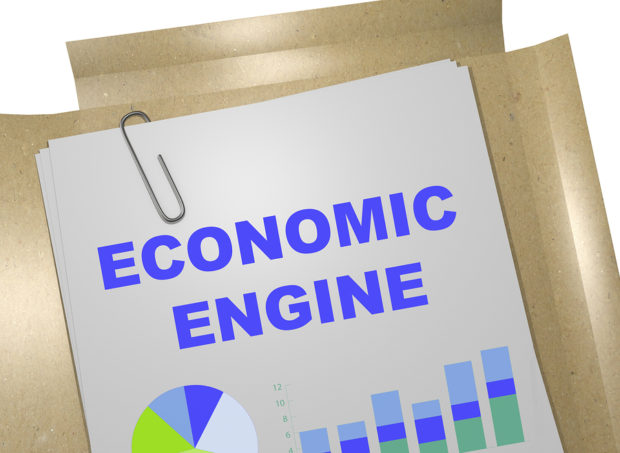Insurers, more than just protecting against financial loss, are key ingredients for economic growth and community preservation, the Insurance Information Institute argues in a new white paper.
Findings from the report, “How Insurance Drives Economic Growth,” highlight the value insurers have in society and also offer important talking points for the industry as it lobbies to protect its interests among both state and federal lawmakers.
“The insurance industry truly is at the heart of the growth and progress of every modern economy,” Sean Kevelighan, chief executive officer of the Insurance Information Institute, said in prepared remarks. “Most people realize that the insurance industry is the financial first responder—providing much-needed recompense after a disaster. But the industry also plays a number of important roles, quietly, that are vitally important to a modern society.”
The white paper asserts that insurance also contributes to the economy in terms of safety/security, economic/financial stability and development. Within these areas, the Insurance Information Institute identifies 10 ways that insurers contribute to society:
- Financial First Responders. The I.I.I. notes that insurers often arrive to a site at the same time as emergency officials. By being there, insurers working to handle claims and beneficiaries help reduce costs even for those not directly impacted by a loss.
- Reducing Risk. Insurers, by sponsoring and promoting events and information to reduce risk, help save lives and protect property.
- Protection of Capital. Insurers matter because they are less vulnerable to short-term liquidity issues and reinsurers help to stabilize insurer loss exposures.
- Social Policy. The white paper credits insurers for being an instrument of social policy, through such things as compensation for work injuries or rebuilding properties after catastrophes.
- Supply Chain. The I.I.I. credits insurers with keeping the supply chain functioning by insuring it. This helps protect “economic interdependence,” according to the white paper.
- Infusion of Capital. According to the paper, insurers infuse capital into the economy by reducing the need among consumers and businesses for rainy day funds. By buying insurance for a relatively inexpensive premium cost, both consumers and businesses focus on producing and consuming goods and services, according to the argument.
- Community Builders. As the white paper points out, insurers have more than $5.8 trillion in assets under management, which makes them the largest investors of capital in the world. This connects to community because insurers’ investment portfolios often include private and municipal bonds that help finance community growth and prosperity. By doing so, insurers help lower borrowing costs that in turn make way for greater investments, lower residential tax rates and job creation/economic growth, the I.I.I. said.
- Infrastructure. Construction projects, once insured, boost the economy. Without those projects, there is little growth.
- Innovation. With insurance, innovators can pursue new ideas and develop advances in products and services. The white paper argues this is key to a developing economy.
- Credit. With insurance, lenders are more likely to fund big purchases and give loans to consumers and businesses. Insurance also helps lower the cost for these loans, the I.I.I. said.
Click here to access the full paper.
Source: Insurance Information Institute





















 The Future of HR Is AI
The Future of HR Is AI  High Court Ruling on Trump Tariffs to ‘Ease Uncertainty,’ Says AM Best
High Court Ruling on Trump Tariffs to ‘Ease Uncertainty,’ Says AM Best  Beyond Automation: The Emerging Role for Contextual AI in Insurance
Beyond Automation: The Emerging Role for Contextual AI in Insurance  Telematics and Trust: How Usage-Based Insurance Is Transforming Auto Coverage
Telematics and Trust: How Usage-Based Insurance Is Transforming Auto Coverage 


